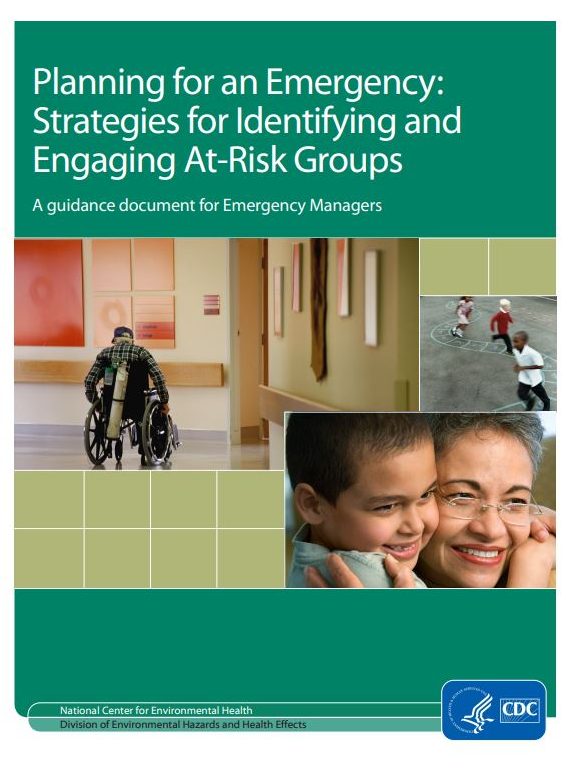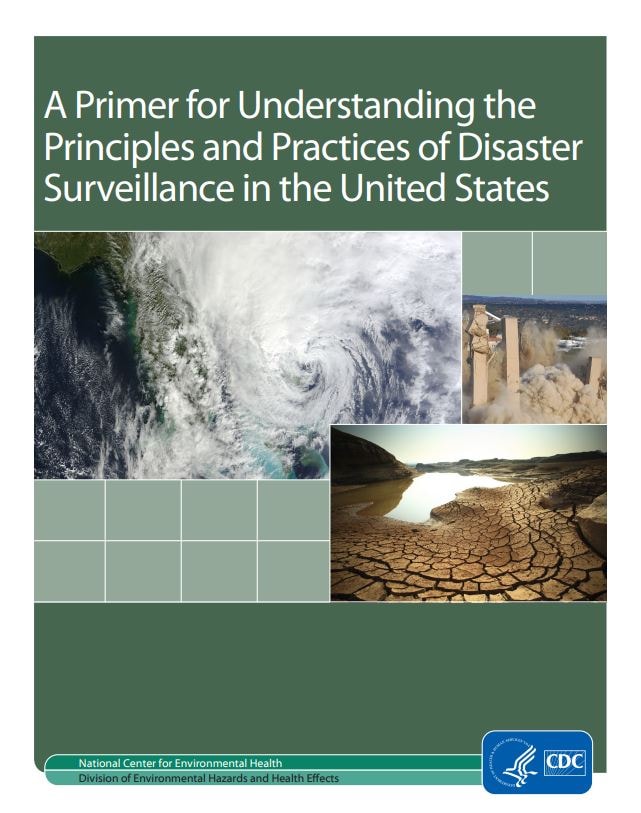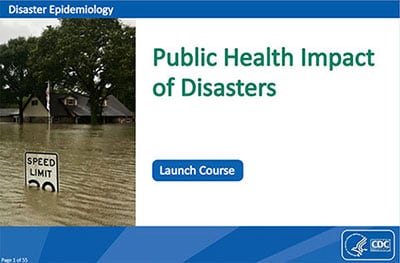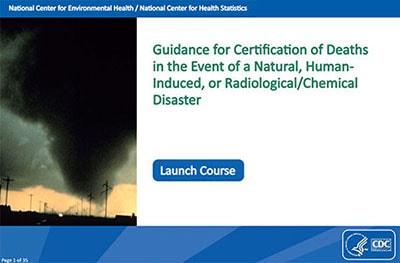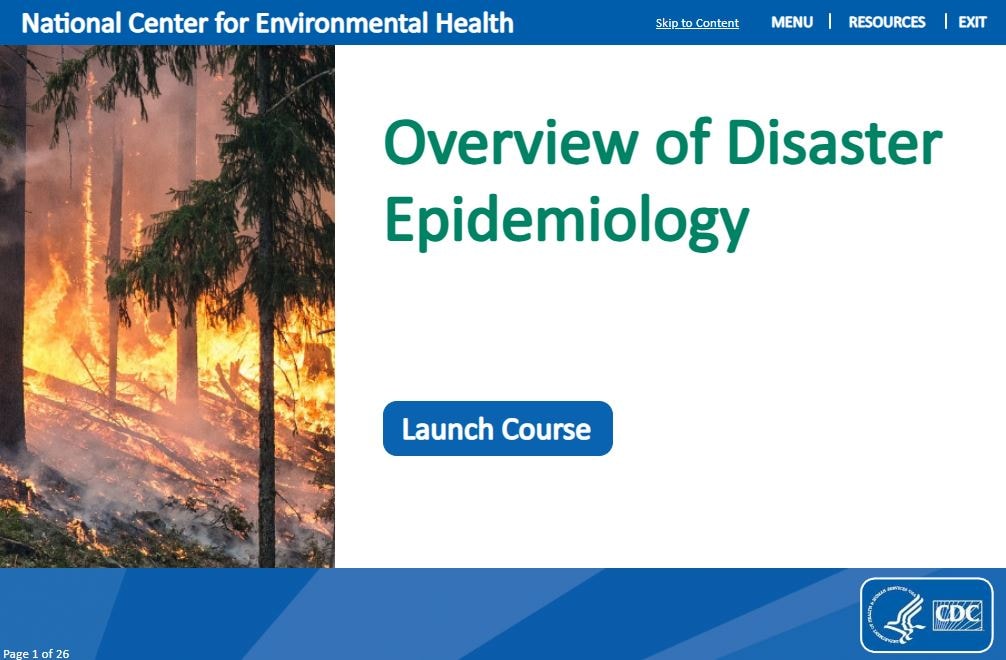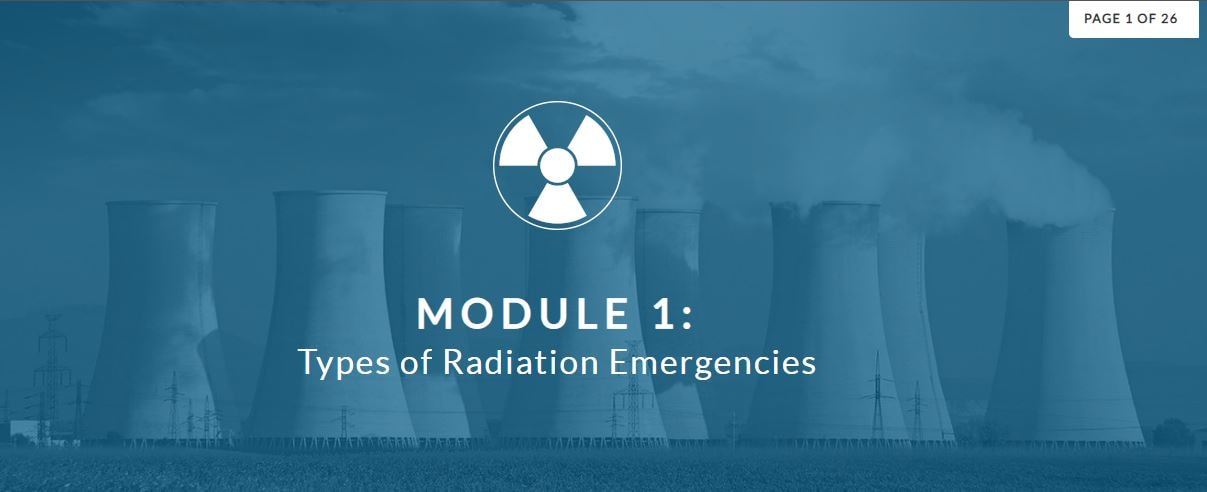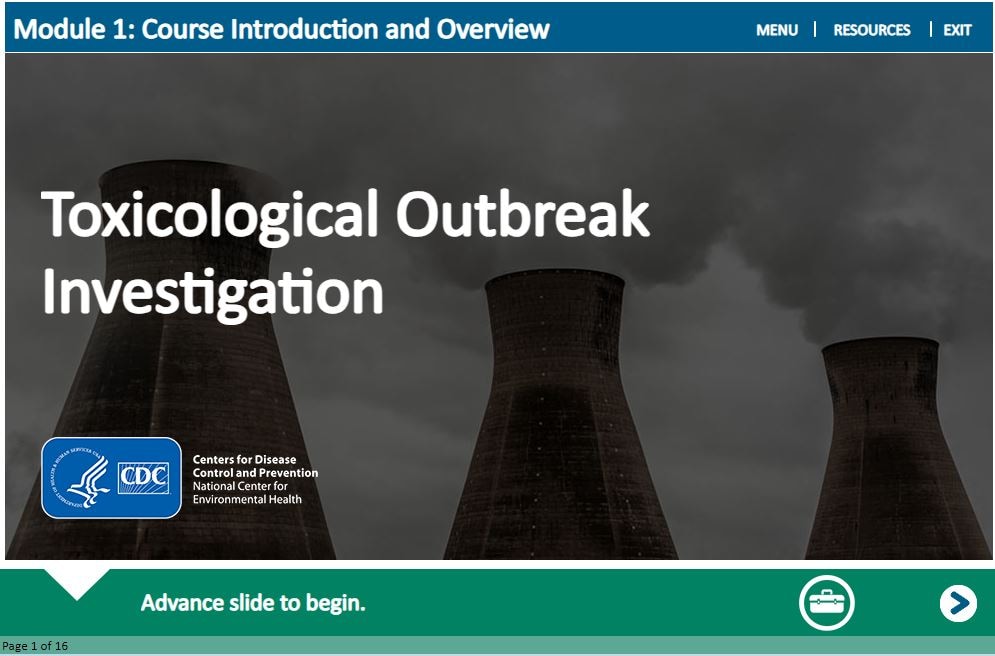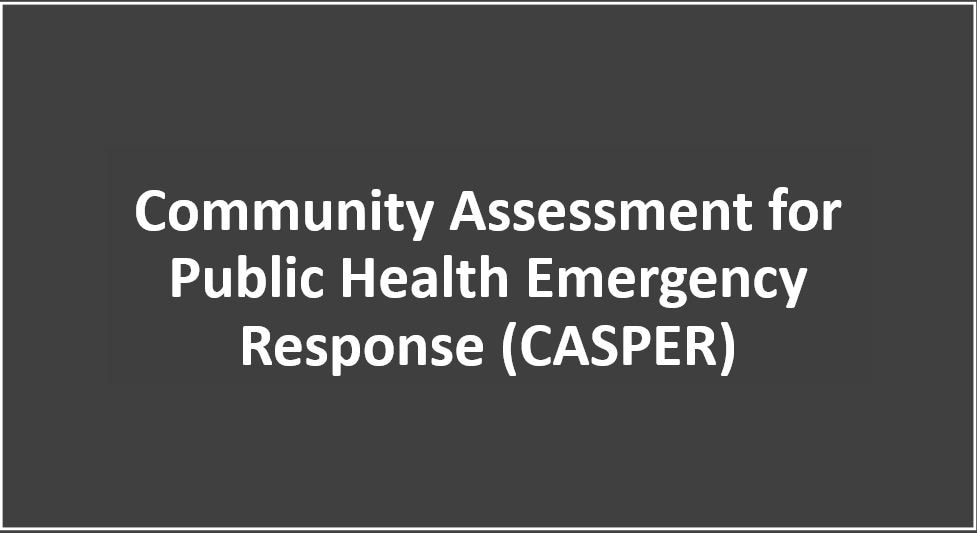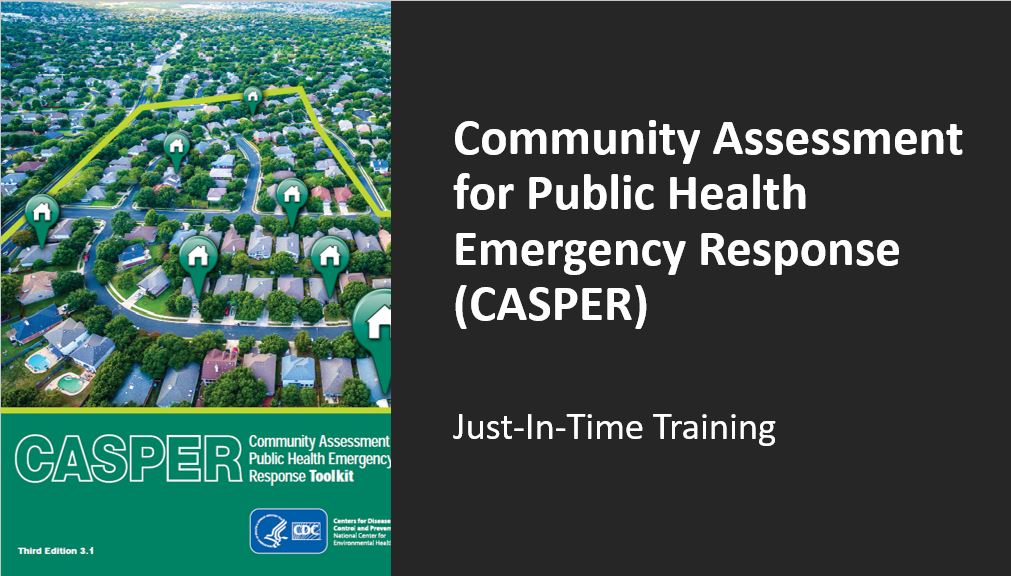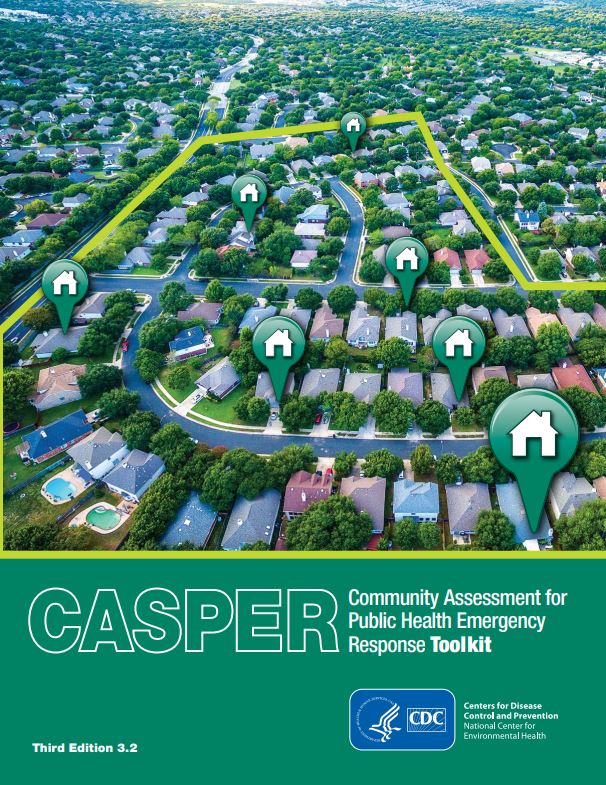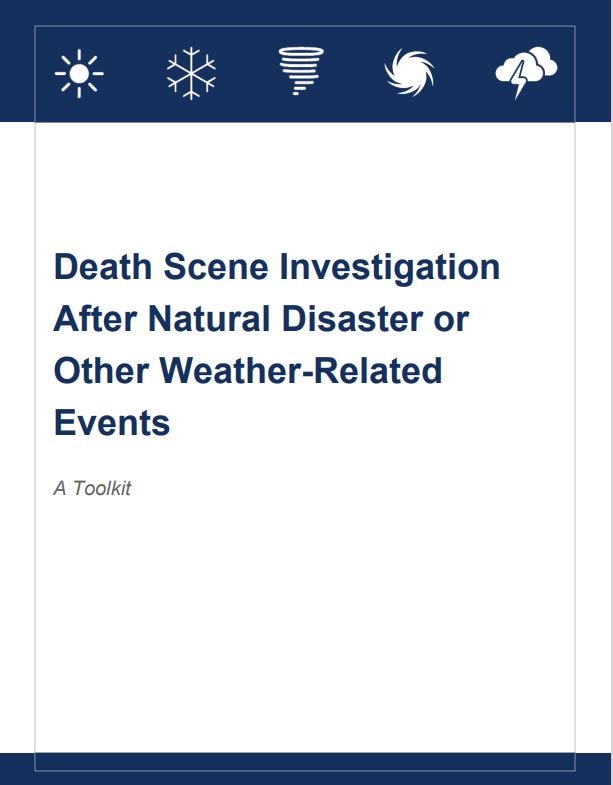Education and Training Resources
Planning for an Emergency: Strategies for Identifying and Engaging At-Risk Groups
This document describes strategies to help emergency managers identify at-risk groups in their communities. The approaches and tools provided can help emergency managers identify, plan for, and assist at-risk groups or socially vulnerable populations within their community.
This document provides introductory information on the purpose, importance, and methods for approaching disaster surveillance in the U.S. The audience for this primer is public health personnel at state, tribal, local, and territorial (STLT) levels.
Disaster Epidemiology eLearning Modules
This training will help the public health and emergency workforce better prepare for and respond to disasters. The training is comprised of four modules: (1) Public Health Impacts of Disasters, (2) Public Health Emergency Management, (3) Community Assessment for Public Health Emergency Response (CASPER), and (4) Disaster Surveillance. Continuing education (CE) is available.
This course provides information on properly completing death certificates for disaster-related deaths. The target audience includes medical examiners, coroners, physicians, and justices of the peace. CE is available.
Overview of Disaster Epidemiology
This online course provides an overview of disaster epidemiology, including the potential public health impacts of disasters, the differences between the direct and indirect effects of a disaster, and the role of a disaster epidemiologist. CE is available.
Radiation Emergency Training for Poison Center and Public Health Professionals
This training is designed to prepare poison center personnel and other public health professionals to respond appropriately in a radiation emergency. The following topics are covered: (1) types of radiation emergencies, (2) protective measures, (3) exposure and contamination, (4) decontamination and medical countermeasures, and (5) risk communication. CE is available.
Toxicological Outbreak Investigation Course
This course aims to train public health personnel to recognize and respond to an outbreak caused by a toxic agent. The target audience includes epidemiologists and other public health professionals who investigate outbreaks. CE is available.
Community Assessment for Public Health Emergency Response (CASPER) Presentation Template
This slide set presentation provides an overview of Community Assessment for Public Health Emergency Response (CASPER). STLT health departments may use these slides to provide a one-day CASPER training.
Download the presentation template or the 508-compliant PDF version.
Community Assessment for Public Health Emergency Response (CASPER) Just-in-time Training Template
This slide-set presentation is designed to provide just-in-time training to STLT health department personnel on conducting a CASPER.
Download the presentation template or the 508-compliant PDF version.
Community Assessment for Public Health Emergency Response (CASPER) Toolkit
This toolkit assists personnel from STLT agencies in conducting a CASPER. The CASPER toolkit provides a step-by-step guide on sample selection, questionnaire development, training, data collection, analysis, report writing, and examples and templates of forms.
Death Scene Investigation After Natural Disaster or Other Weather-Related Events: A Toolkit
This toolkit features checklists, forms, and other resources for death scene investigators to use when collecting data at death scenes during and after a natural disaster or other weather-related events.
Toxicological Outbreak Investigation Toolkit
This toolkit contains customizable documents for an outbreak investigation, including a sample line list, sample medical record abstraction form, and sample questionnaire.
Disaster Epidemiology Training
The HSP provides disaster epidemiology training to STLT public health and emergency response personnel by request. The training aims to increase emergency response capacity, improve disaster epidemiology skills, and share lessons learned.

Toxicological Outbreak Investigation Training
The HSP provides in-person training on toxicological outbreak investigations to STLT and international public health agencies by request. For more information or to request a training, contact ncehoutbreak@cdc.gov.
Emory/CDC Medical Toxicology Fellowship
Fellows work with medical toxicologists at CDC to investigate various outbreaks of illness nationally and internationally.
